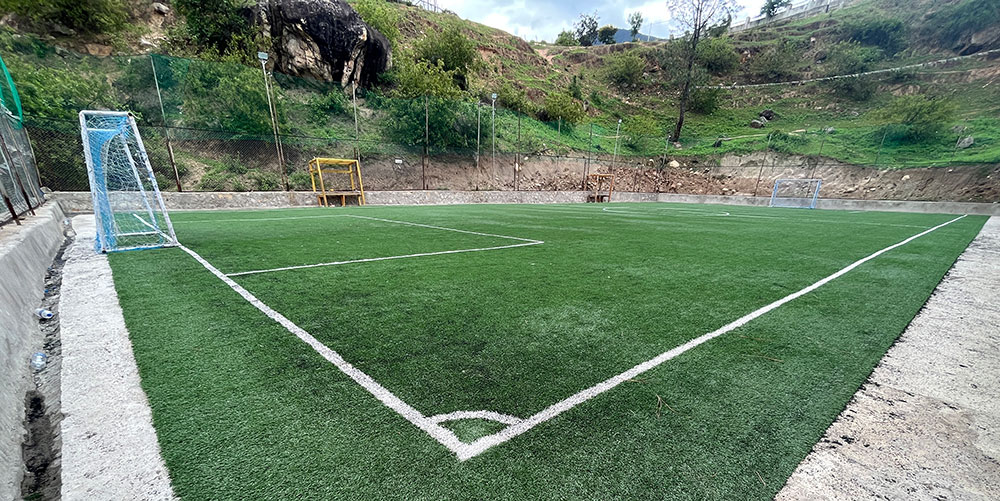Chencho Dema
PUNAKHA — Once considered a lucrative business venture, futsal turfs, known locally also known as mini-football grounds, in Punakha are now grappling with a troubling decline. These once-vibrant arenas now witness sparse games, and at times, they lay empty, casting a shadow on their uncertain future.
The district is home to six futsal grounds, spread across various locations, from Lobesa to Khuruthang town, Gumkarmo to Changyuel. In a region where recreational facilities are limited, futsal emerged as a favoured activity among football enthusiasts. However, amidst the district’s scattered residents, including those from 11 gewogs, many voices express concerns that there is an oversaturation of futsal fields.
Namgay Dorji, the manager of Gakithang Futsal, situated on the opposite side of Khuruthang town, says that the abundance of grounds has led to a shortage of players. “In order to curtail the proliferation of futsal turfs, the concerned authorities must intervene; otherwise, the future of the remaining turfs is uncertain.”
He believes that districts with a smaller population should ideally have a minimum of two to three futsal grounds to maintain a sustainable balance.
Despite the challenges, a glimmer of hope remains. On most nights, two to three matches are still played, although there are instances when the grounds stand deserted. Gakithang Futsal stands out as the sole seven-sided ground, while others offer five or six sides.
Monetary concerns also add to the pressure on these businesses. During the peak season, typically from November through January, a single game costs Nu 1500 after 5pm, but the rate drops to Nu 1200 for matches played before that time. Interestingly, the charges vary among different grounds, creating a competitive atmosphere among owners.
Pema Thinley, the general secretary of the Punakha Sports Association, says that authorities are aware of the predicament and frequently observe abandoned fields. However, if the futsal ventures have proper documentation, there is limited room for intervention.
Thinley admits that the phenomenon of outmigration, particularly among the youth and civil servants, is also impacting the businesses’ performance.
The future of futsal in Punakha remains unpredictable, with potential further expansions or the unfortunate possibility of existing businesses shutting down due to lack of players.
The winter break offers a glimmer of hope for these establishments, as teachers, students, and even monks return to Thimphu from their summer residences, leading to increased participation during this time.
Most of the participants in Punakha’s futsal games are government employees, educators, students, monks, or locals from Laya and Lunana who travel to the district during winter. With the increasing number of grounds, competition intensifies, prompting owners to enhance services and offer complimentary incentives, such as a free game after 10 matches played.
However, amidst this struggle for survival, players lament the confusion caused by the abundance of grounds, leading them to opt for locations nearby.
As the fate of Punakha’s futsal turfs hangs in the balance, stakeholders eagerly await intervention from relevant authorities to address the pressing issues and ensure the sustainability of this beloved sport.


